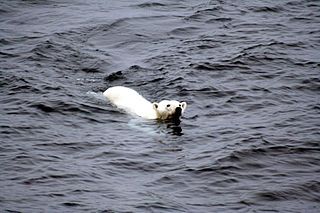Motivating Americans to Take Action on Climate Change
In response to my post earlier today on motivating Americans to take action on climate change, frequent commenter Larry Lemmert notes:
You can claim “Super” storm Sandy was a result of global warming but I think that you are skating on thin ice…..Mixing climate change into the argument is a distraction from the important issue of whether there should be federally subsidized flood insurance available in flood plains and whether zoning laws should even permit this construction in the first place.
Thanks, Larry. I agree that it’s foolishness to attribute any one storm, or the temperature of any one year, to climate change. In fact, I used “many people think that…” precisely for that purpose; it’s certainly true that Sandy sounded an alarm bell on the subject to many millions of people who, up to that point, had been manipulated by the deniers’ paid propaganda. Any alarm in an emergency, regardless of why it’s ringing, is a good thing, if you ask me.
Regarding the most important long-run issues in this arena, I predict that the discussion about the damage caused by climate change will dwarf the conversation around federally subsidized flood insurance available in flood plains and related zoning laws.
I only hope I’m wrong.


I would agree that attributing one specific weather event to climate change is usually highly questionable, however even in this, we are beginning to reach a point where we can say in certain cases that climate change is likely to have been a contributing factor.
Take Super Storm Sandy, the following article offers the hypothesis that reductions in Arctic ice cover combined with an unusually warm Atlantic ocean allowed Super Storm Sandy to pick up far more energy than would have been available to it in most years, and further that these changes are some of the outcomes of climate change.
i.e. that without climate change the storm could not have picked up enough energy to do the amount of damage it did.
http://www.theregister.co.uk/2013/03/16/arctic_sea_ice_decline_effect_on_superstorm_sandy/
On a more general note the following article relating to an analysis of insurance losses shows in the graph on P14 a clear upward trend since 1980 in the frequency of weather related events resulting in insurance losses which is decoupled from a steady level of geophysical events e.g. earthquakes and volcanoes. This to me indicates that the increase is most likely down to more such weather events rather than to demographic changes or people being quicker to make insurance claims.
http://www.cccep.ac.uk/Publications/insuranceBriefs/economic-trends-insured-losses.pdf
Many large insurance companies and asset management firms are already waking up to the severe threat that climate disruption presents to their bottom lines, and they are now calling for bold action. This fact is highly telling.